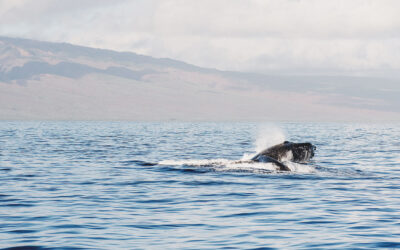About
ecological spirit
Why Ecological Spirit?
Ecology is the study of interactions among living things and their environment, and the spirit is considered an essential force that animates nature. The two are inseparable in our holistic world system. We are part of nature. Ecological Spirit aims to promote ecological solutions through rigour in science and promote the best solutions for our local grassroots and global environmental needs through dialogue.
Ecology vs. Sustainability
Rachel Carson (1962) with her book “Silent Spring” was recognised as helping with the modern environmental studies launching ecology into the mainstream. Yet, Ecology is a word that has fallen out of fashion in politics and science and often replaced with sustainability. There are however subtle and important differences. The definition of sustain is “to cause or allow something to continue for a period of time” (“Cambridge Dict.,” n.d.) which implies staying the same. Sustainability is associated with conservation and permanency with regards to protecting the planet, how we perceive it should be, usually on the premise of humankind verses nature (Gregory, 2018; Russell, 1928; Sang, 2009; Watts, 1951). This framing of the nature is a presumption accepted as a norm and not always challenged (Joost & Meerloo, 1956; Wahl-Jorgensen & Hanitzsch, 2009). This is an abstract ideology, the world is a complex dynamic system where such permanence is a presumption that is often taken as fact (Bohm, 1980, 1992). This pursuit of permanence leads to attachment, fear of loss, jealousy, fear and hate; yet there is no permanence in anything (Bohm, 1980, 1992, 2003; Jiddu Krishnamurti, 2010).
|
“But of course, to understand this whole question, much more is required.” (Bohm, 1985) |
Enormous changes have been happening in the socio-technical system over the past decades with a technological paradigm shift away from fossil fuels to a sustainable energy system (Abas, Kalair, & Khan, 2015; Bergman & Foxon, 2021; Lombardi & Vannuccini, 2021; Mathews, 2013). A technoeconomic paradigm shifts is a technology change characterised by the creation of space for the new technology, the growth or surge with it, and the ending of, or reduction in a previous technology (Perez, 2004). This shift has been exacerbated by the recent pandemic and now the war in Europe. The challenges and opportunities of pursuing a sustainable future have been widely discussed and debated in academic and popular discourse for several decades (Keeble, 1988). In particular, the issue of polarisation in contemporary science and academia has emerged as a key factor that can influence the success or failure of efforts to achieve sustainability (Kahan, Jenkins-Smith, & Braman, 2010; Pellow, 2014; Rosling, 2019). However, the relationship between green intentions and the broader philosophical socioeconomic context has not always been carefully studied.
We need to encourage ecological processes, framing and policies in harmony with natural cycles (Bohm, 1985; Gregory, 2018; Lakoff, 2010; Sang, 2009; Watts, 1951). We need more than just a technological paradigm shift, we need a shift in the fundamental way we perceive our planet to create an ecological world (Bohm, 1985, 1992; Gregory, 2018; Lakoff, 2010; Lockwood, 2020; Pirsig, 1974; Rosling, 2019; Sang, 2009; Scott, 1998; Watts, 1951). A transition to a new ecological paradigm appears to be prejudiced, suggesting that potentially there will not be the true transition needed to create a more ecological world; trust in science and academia could be severely eroded by such implications.
|
“While asserting that the poor create their own poverty, ruling elites pursue policies that take from the needy and give to the greedy” (Parenti, 1996). |
With the premise that global elites and government controlling the agenda it is evident that local needs are side-lined in favour of corporate and top-down governance needs (Parenti, 1996, 2016). The consequences from the perspective of thinking global and acting local, indicates that we need to look at the grassroots for change, which is, ultimately, ourselves, being accountable for our own actions and how we perceive the world (Krishnamurti, 1985, 2010; Krishnamurti & Bohm, 2003; Pirsig, 1974).
|
“The place to improve the world is first in one’s own heart and head and hands, and then work outward from there” (Pirsig, 1974). |
Ecology and the Spirit
Being accountable for our own actions implies spiritual growth and relates to the study of interactions among living things and their environment, ecology. This human centre ecology involves a greater understanding of ourselves, a spiritual growth, and our environment. Bohm (1980) argued, from a more philosophical perspective, that science has become too focused on reductionism and analysis, leading to a fragmentation of knowledge and a failure to see the interconnectedness of phenomena. Bohm suggests that we must shift our perspective to a more holistic and interconnected view of the universe to overcome these limitations. From a philosophical perspective, a technological paradigm is often associated with the “mastery of nature”, rather than working with nature (Bloom, 1991; Lakoff, 2014; Mearsheimer, 2018; Russell, 1928). Being a part of nature the framing of “us and nature” can be replaced with just nature. With dialogue we can communicate with greater understanding gaining insights into the presumptions behind language. This paradigm shift in understanding allows for new questions to be asked based upon holistic presumptions. With this premise politicians and scientists can frame situations with a holistic perspective. It is important to consider the broader term of ecology where the word sustainable is often used. We are part of nature, and it is constantly changing, and we do not need to fear this. Ecology and the spirit are inseparable in our holistic world system.
Bibliography
Abas, N., Kalair, A., & Khan, N. (2015). Review of fossil fuels and future energy technologies. Futures, 69, 31–49. https://doi.org/10.1016/J.FUTURES.2015.03.003
Bergman, N., & Foxon, T. (2021). Drivers and effects of digitalisation on energy demand in low carbon scenarios SPRU Working Paper Series Science and Technology Policy Innovation and Project Management Energy Policy Sustainable Development Economics of Innovation. SPRU Working Paper Series (ISSN 2057-6668). Retrieved from www.sussex.ac.uk/spru/research/swps
Bloom, A. (1991). The Republic of Plato. Second edition. Translated with Notes and an Interpretive Essay. In Basic Books. A Division of Harper Collins Publishers.
Bohm, D. (1980). Bohm Wholeness and the Implicate Order. Routledge.
Bohm, D. (1985). Unfolding Meaning: A Weekend of Dialogue.
Bohm, D. (1992). Thought as a System. Routledge.
Bohm, D. (2003). The Essential DAVID BOHM (L. Nichol, Ed.). Routledge.
Cambridge Dictionary. (n.d.). Retrieved April 3, 2023, from Cambridge Dictionary website: https://dictionary.cambridge.org/dictionary/english/
Gregory, J. (2018). Effortless Living. Wu-Wei and the Spontaneous State of Natural Harmony. Simon and Schuster.
Jiddu Krishnamurti. (2010). Don’t Make a Problem of Anything: Discussions with J Krishnamurti.
Joost, A., & Meerloo, M. (1956). The Rape of the Mind. The Psychology of Thought Control, Menticide, and Brainwashing (Vol. 4). Progressive Press.
Kahan, D. M., Jenkins-Smith, H., & Braman, D. (2010). Cultural cognition of scientific consensus. Http://Dx.Doi.Org/10.1080/13669877.2010.511246, 14(2), 147–174. https://doi.org/10.1080/13669877.2010.511246
Keeble, B. R. (1988). The Brundtland Report: “Our Common Future.” Medicine and War, Vol. 4, pp. 17–25. https://doi.org/10.1080/07488008808408783
Krishnamurti, J. (1985). The Way of Intelligence. Krishnamurti Foundation India.
Krishnamurti, J. (2010). The Book of Life. HarperOne.
Krishnamurti, J., & Bohm, D. (2003). The Limits of Thought. Discussions. In Routledge. Taylor & Francis Group.
Lakoff, G. (2010). Why it Matters How We Frame the Environment. 4(1), 70–81. https://doi.org/10.1080/17524030903529749
Lakoff, G. (2014). Praise for The All New Don’t Think of an Elephant! Praise for the first edition, Don’t Think of an Elephant! Chelsea Green Publishing.
Lockwood, M. (2020). Routes to credible climate commitment : The UK and Denmark compared. (December).
Lombardi, M., & Vannuccini, S. (2021). A paradigm shift for decision-making in an era of deep and extended changes SPRU Working Paper Series Science and Technology Policy Innovation and Project Management Energy Policy Sustainable Development Economics of Innovation. SPRU Working Paper Series (ISSN 2057-6668). Retrieved from www.sussex.ac.uk/spru/research/swps
Mathews, J. A. (2013). The renewable energies technology surge: A new techno-economic paradigm in the making? Futures, 46, 10–22. https://doi.org/10.1016/J.FUTURES.2012.12.001
Mearsheimer, J. J. (2018). Great delusion: Liberal dreams and international realities. In Great Delusion: Liberal Dreams and International Realities. https://doi.org/10.1080/23340460.2019.1613054
Parenti, M. (1996). Dirty Truths: Reflections on Politics, Media, Ideology, Conspiracy, Ethnic Life, and Class Power.
Parenti, M. (2016). The Face of Imperialism. Taylor & Francis.
Pellow, D. N. (2014). Total Liberation – The Power and Promise of Animal Rights and the Radical Earth Movement. Retrieved April 9, 2023, from University of Minnesota Press website: https://www.google.co.uk/books/edition/Total_Liberation/-S90DwAAQBAJ?hl=en&gbpv=1&dq=The+power+and+promise+of+animal+rights+and+the+radical+earth+movement.&pg=PT10&printsec=frontcover
Perez, C. (2004). TECHNOLOGICAL REVOLUTIONS, PARADIGM SHIFTS AND SOCIO-INSTITUTIONAL CHANGE. Globalization, Economic Development and Inequality: An Alternative Perspective.
Pirsig, R. (1974). Zen and the Art of Motorcycle Maintenance An Enquiry into Values. In HarperColllins e-books (April 10,). Retrieved from https://www.pdfdrive.com/zen-and-the-art-of-motorcycle-maintenance-an-inquiry-into-values-e185682393.html
Rosling, H. (2019). Factfulness. In Review of Global Management. https://doi.org/10.19083/rgm.v4i1.924
Russell, B. (1928). Skeptical Essays. In Philosophical Studies (Vol. 31). https://doi.org/10.5840/philstudies1986/19873154
Sang, L. H. (2009). The Daodejing of Laozi The Living Dao: The Art and Way of Living A Rich & Truthful Life translated with annotations by The Daodejing of Laozi 2 2 Acknowledgements. Retrieved from https://www.ln.edu.hk/econ/staff/daodejing%2822 August 2002%29.pdf
Scott, J. C. (1998). Seeing like a state, seeing like a city. How Certain Schemes to Improve the Human Condition Have Failed. In J. C. Scott (Ed.), Politics of Urbanism. Yale Agrarian Studies Series.
Wahl-Jorgensen, K., & Hanitzsch, T. (2009). The Handbook of Journalism Studies. In K. Wahl-Jorgensen & T. Hanitzsch (Eds.), Routledge Taylor & Francis Group. Routledge Taylor & Francis Group.
Watts, A. W. (1951). The wisdom of Insecurity. A Message for an Age of Anxiety. Vantage Books.
Latest News
Road to Hell is Paved with Green Intentions
High-Modernist Green Ideology Is the road to hell paved with green intentions? Edited: 30/04/2024. How does a High-Modernist Green Ideology influence the transition to a sustainable future? Mumford's, (1964) described ‘Authoritarian Technics’ as a powerful...
Road to Hell is Paved with Global Intentions
High-Modernist Global Ideology How does a High-Modernist Global Ideology lead to disaster? Edited: 24/05/2024 Science and Technology Policy (STP) is a set of processes and decisions that aim to influence the use of science, technology and innovation (STI) for...
Prepositions & Framing of Science
Presuppositions & Framing Science Policy:Paradigms, Systems, Ideology & Policy Making. Edited: 17/03/2024 Presuppositions are the inherent assumptions made within language that provide meaning when we communicate with one another (Bohm, 2013)....


